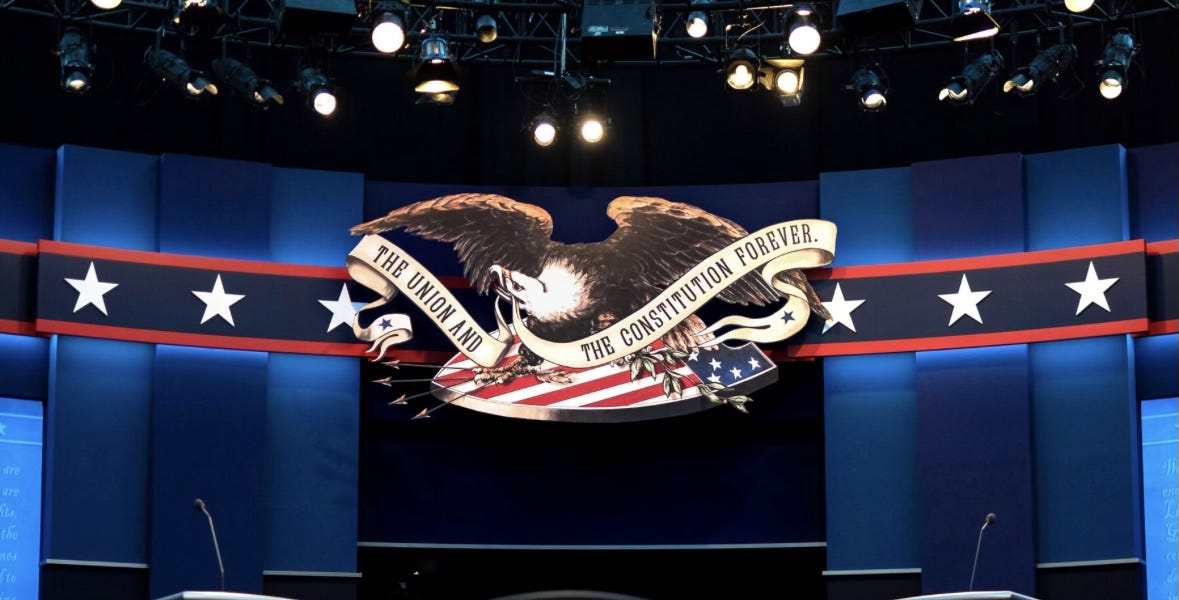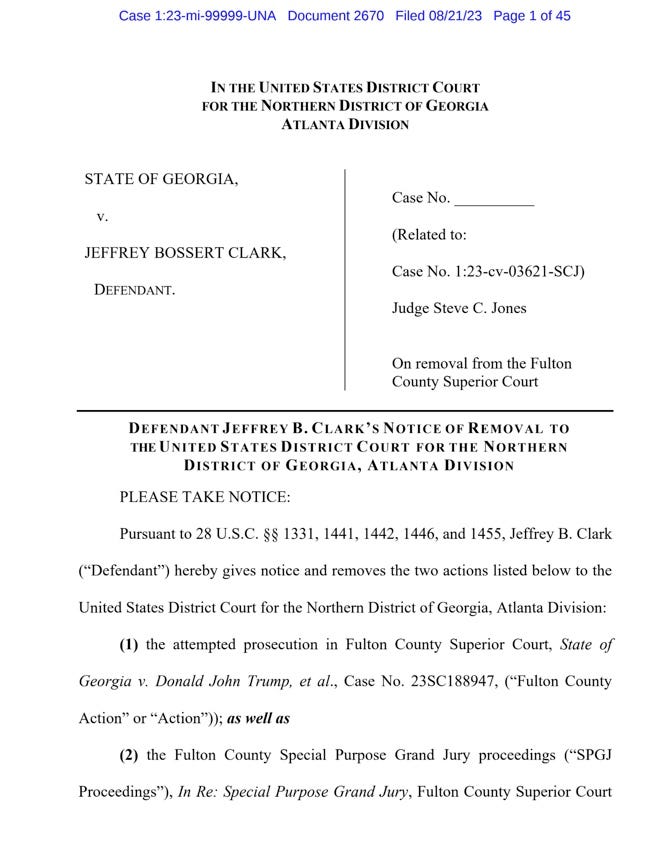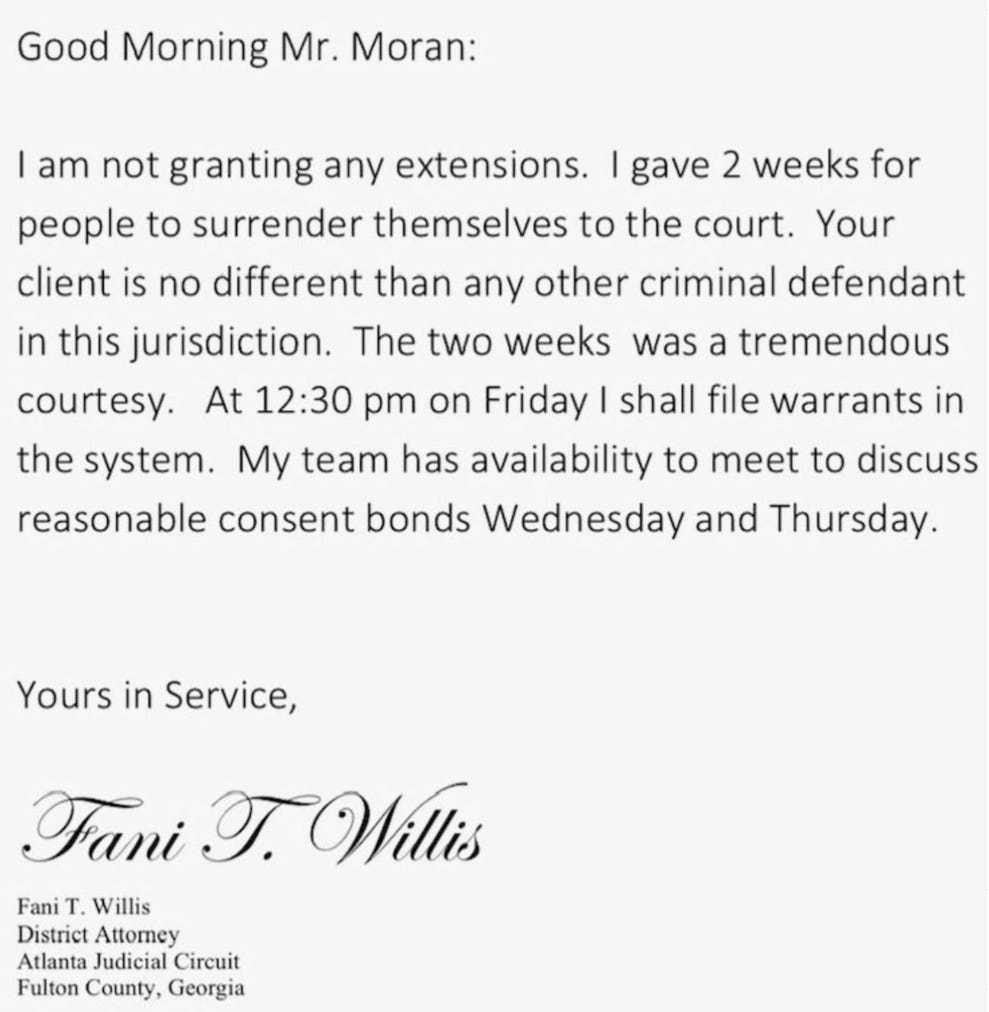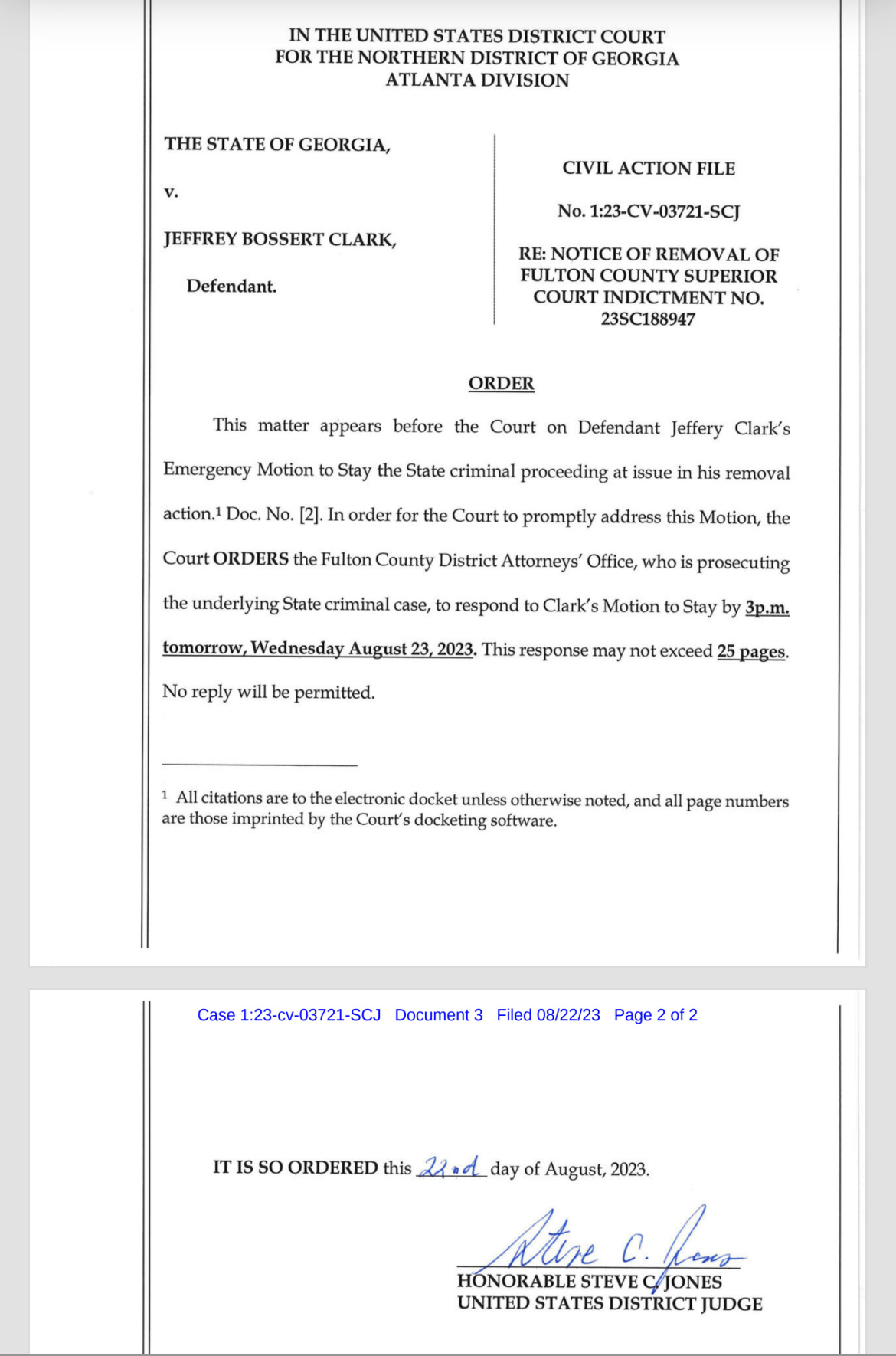Part 3
Clark also claims the Fulton County Sheriff runs one of the worst jails in the country. This is not an inaccurate characterization. The jail is under investigation by DOJ. Likely all of the almost
3,000 inmates in the jail would like to be free from arrest. But that’s not how the criminal justice system works, although perhaps we will hear bipartisan support for funding fixes to unconstitutional conditions in some of the nation’s jails and prisons after elite Republicans have up-close exposure to conditions so many inmates have to contend with.
Clark also complains that Willis gave him a mere two weeks to formulate his strategy, despite his week of delay before filing a notice of removal. He complains the court won’t decide Mark Meadows’s removal in time to prevent his arrest, but of course, he misses the point entirely. The law, which permits the state court to move forward until a federal judge decides he will remove the case, authorizes that arrest. And if that were to happen here, Clark’s case would be moved to federal court. It wouldn’t immediately disappear, even if his immunity arguments had merit, which they seem to be sorely lacking. Clark’s argument is that he doesn’t like the law, and he doesn’t want it to apply to him like it applies to everyone else. He would have been, God forbid, the perfect Attorney General for Trump. He’s a Karen.
So Clark wants a stay, a remedy available in a civil case but not a criminal one, to keep himself from being arrested. Of course, the choice is his, he can go to Atlanta, turn himself in, and arrange for a modest bond that he will be required to put only 10 percent of the total amount toward. But he’s not entitled to a civil remedy in a criminal case. Clark also has the temerity to set out a schedule for the Judge to follow, an unusual show of arrogance for any litigant, let alone a criminal defendant. Clark would give the Judge until August 31 to decide the matter, reinserting an order that he can reply to the government’s motion, which is most decidedly not what the Judge seems to have in mind.
The law supports the Judge in that regard, by the way,
requiring a “notice of removal of a criminal prosecution shall include all grounds for such removal. A failure to state grounds that exist at the time of the filing of the notice shall constitute a waiver of such grounds, and a second notice may be filed only on grounds not existing at the time of the original notice.” In other words, once Clark files his Notice, that’s it. The Judge isn’t even required to consider the motion that accompanies it, although he likely will. Fani Willis gets to respond, and then the matter is with the court for a decision, under the rules. The Judge was correct to restrict Clark unless he offers good cause to make additional arguments, which he hasn’t even attempted in his motion. This is something of a technical legal point, but it shows just how far afield from the dictates of the law Clark’s legal pleadings to date have taken him. If he thought these arguments were a good idea in his criminal case, then we may well be getting an understanding of the extraordinary lapse of legal judgment that led him to where he is today.
You can read his entire Notice of Removal
here, to get a taste of his conclusory style of pleading. Clark expresses outrage over the charges and states that he’s confident the court will clear him. He also concludes: “For the first time in United States history, a former President of the United States has been charged with running a criminal organization. This is wildly implausible on its face (whatever some ratings-hungry media pundits might posture).” Clark also expresses outrage he didn’t have any “visibility” into the special grand jury proceedings—of course, a criminal lawyer would know he was not entitled to that. While Clark is correct that there is a low bar for removing a federal’s official state criminal case to federal court, there is still a bar. The official must have been “acting under color of law”—doing the work their job required of them. Courts aren’t required to accept that assertion at face value any more here than they would be if a group of public officials engaged in planning a bank robbery claimed they were doing the nation’s business.
Or than if a president claimed that defaming and insulting a private citizen was part of his job as president.
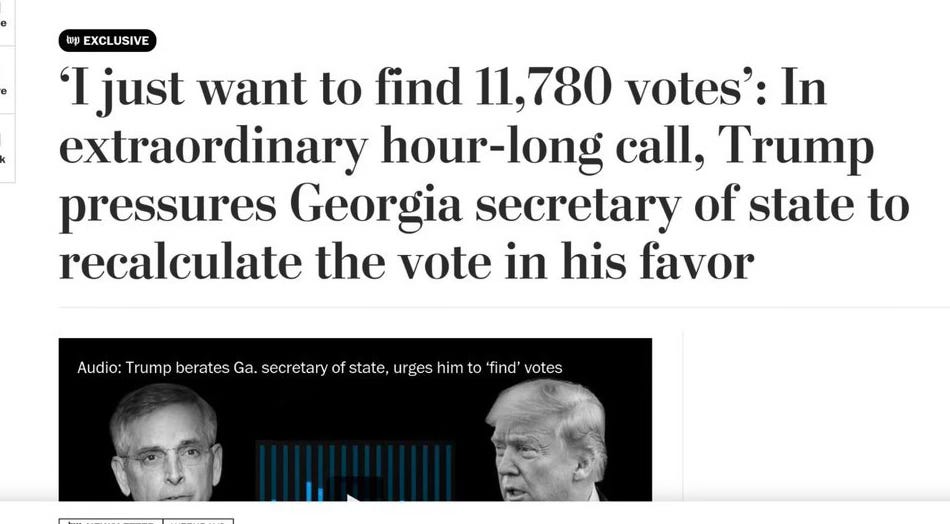
NOT the work of public officials, acting under color of law
Not content to give the judge a week to make a final decision, Clark tried to impose a deadline of 5 p.m. on Tuesday, the 22nd, now yesterday, to enter an order staying any arrest while the court was considering Clark’s arguments. That obviously failed. Clark objected to being forced to make “rushed travel arrangements” to fly to Atlanta or risk being labeled a fugitive. But that’s what happens when you’re indicted in a criminal case. Clark is not above the law.
The former Assistant Attorney General doesn’t seem to understand how any of this works, despite thinking he was qualified to run the Justice Department. Fortunately for him, there are plenty of flights that can still get him from Washington, D.C., to Atlanta on time. And if he can’t manage it on his own, law enforcement will be happy to help him get there.
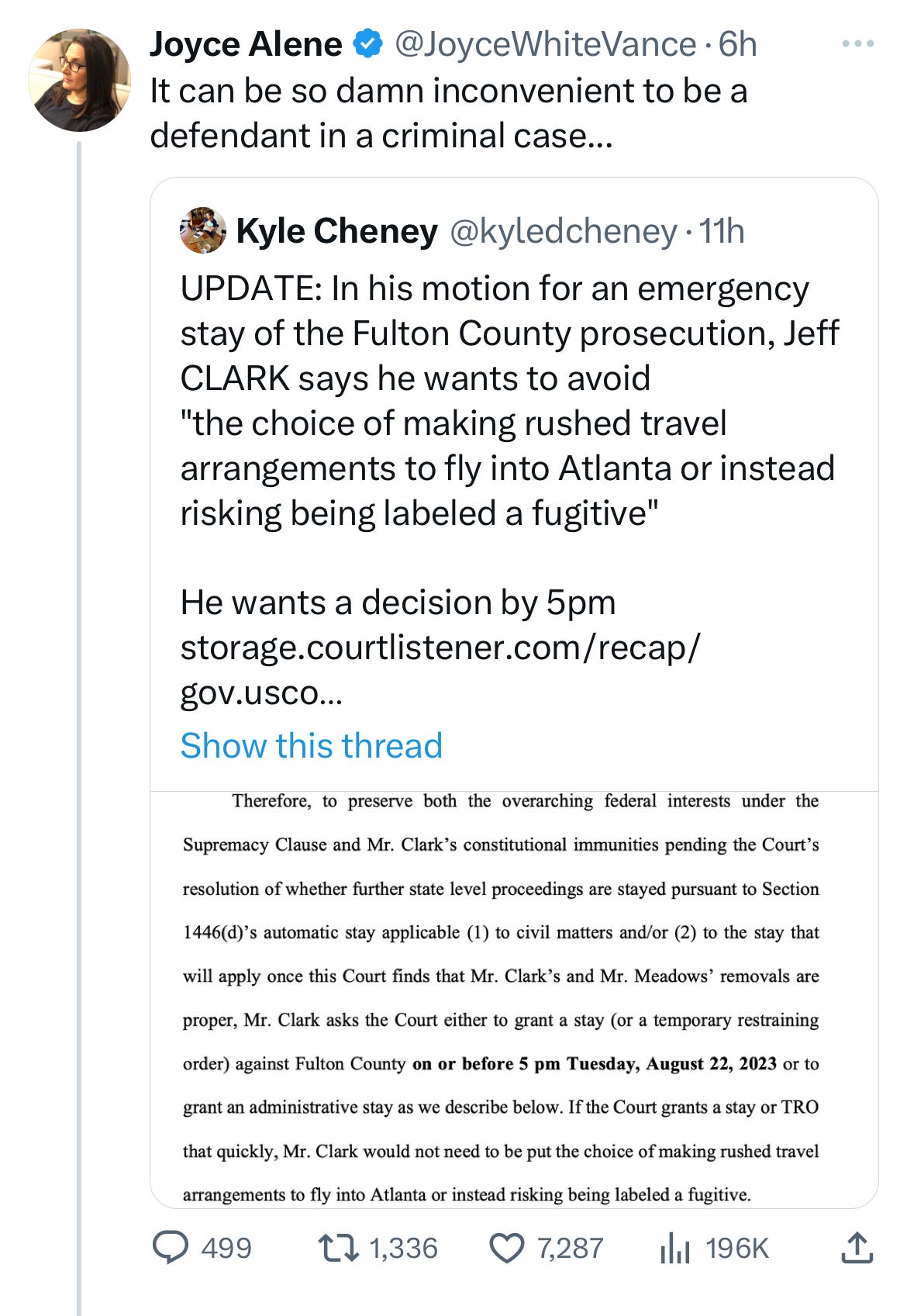
Sometimes, you should take the advice, even if it was intended for someone else

joycevance.substack.com
